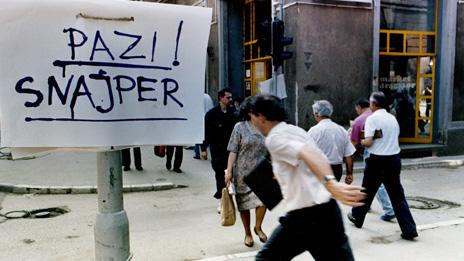Bosnian war: Aladza Mosque reopened after 1992 bombing
- Published
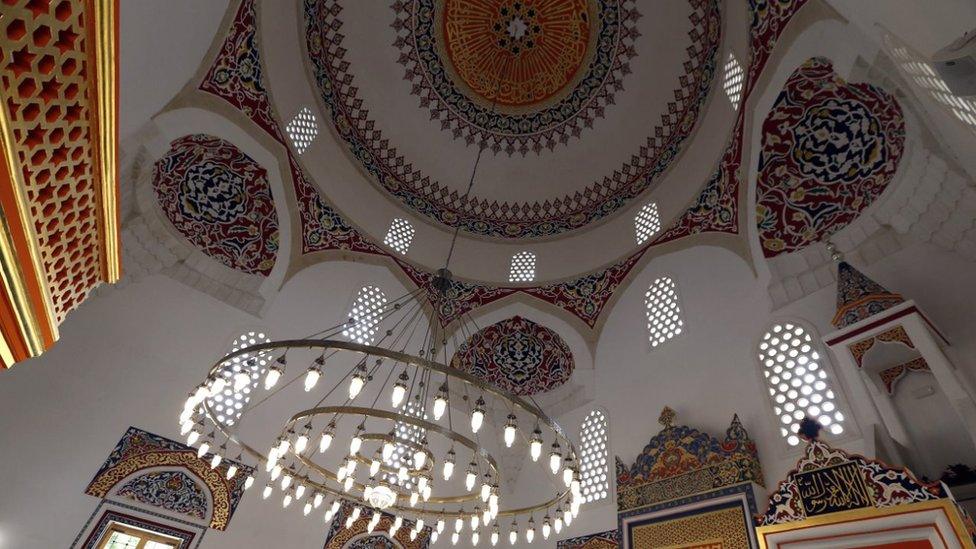
The Aladza Mosque was known for its colourful design
Thousands of people have attended the re-opening of a renowned mosque in Bosnia, almost three decades since its destruction during the 1992-1995 war.
The Aladza Mosque in Foca was targeted at the start of the conflict as part of plans by Bosnian Serb forces to create an ethnically pure state.
The 16th Century mosque was considered a masterpiece of Ottoman architecture.
The restoration project has taken several years, with financial help from countries including Turkey.
The mosque was built around 1550 - where it stood until it was blown up by dynamite.
In 2018, a former Bosnian Serb soldier was charged, external for his part in planting the explosives.
Original parts of the mosque's stonework, which were dumped after its destruction, have been excavated.
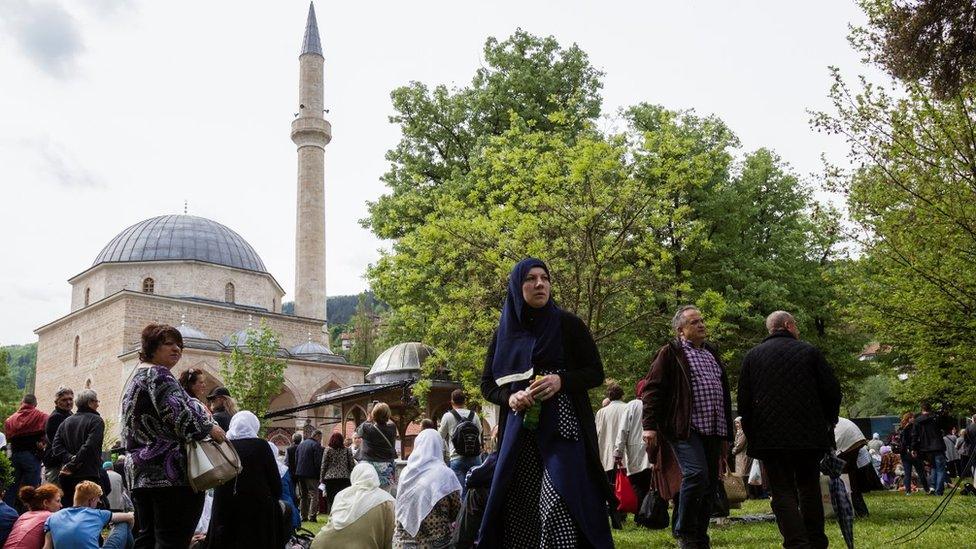
The Aladza mosque has been rebuilt after being totally destroyed

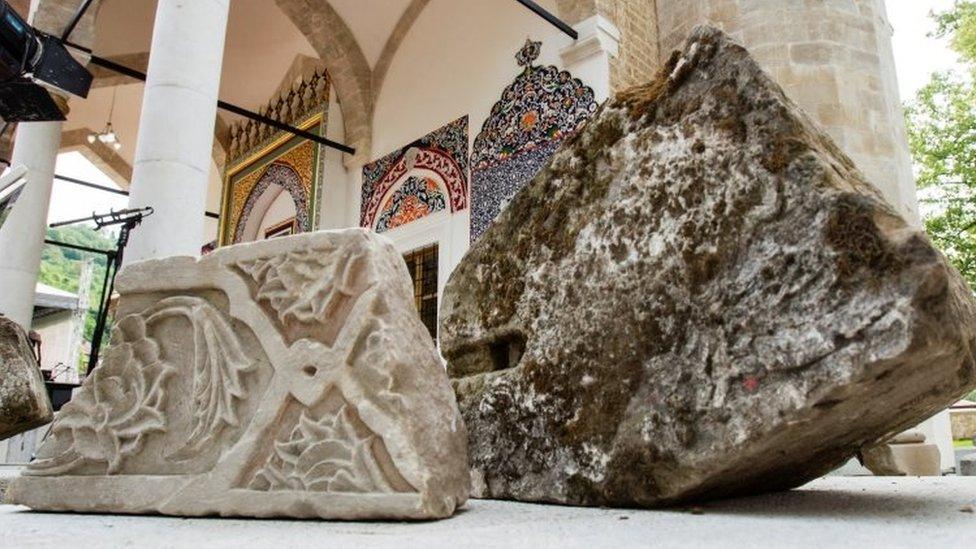
Original stonework from the mosque on display at the site
Thousands of Muslims attended the mosque's reopening in Foca - where a total of 12 mosques were destroyed during the conflict.
Before the war, Muslims made up more than half the town's 41,000 population - but now little more than 1,000 live there, Reuters news agency reports.
Foca became notorious for the mass persecution and killings of non-Serbs that took place there during the conflict.
During the war, it was renamed Srbinje - but in 2004 Bosnia's top court ordered the reinstatement of its original name.
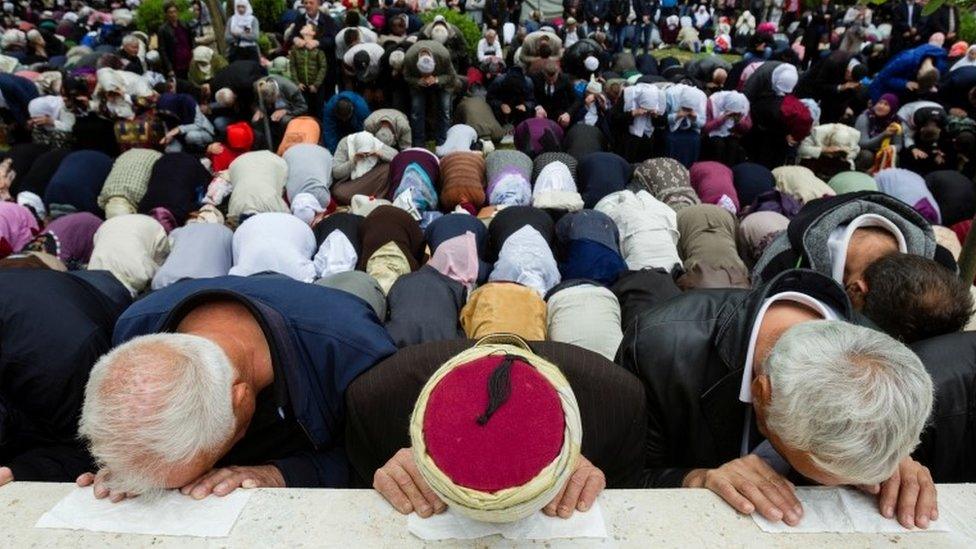
People seen praying at the historic site on Saturday
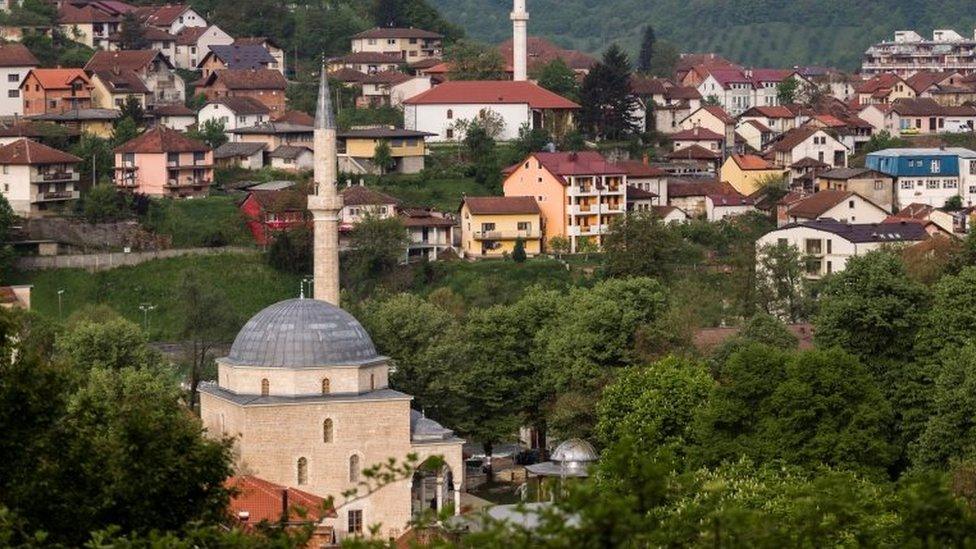
In total, 12 mosques were destroyed in the town during the conflict
Members of Bosnia's Islamic Community have praised the reopening of the historic site.
"Today we are witnessing a hope that people will again find peace at this place," the groups head, Husein Kavazovic, said at the ceremony.
Turkish Culture Minister Mehmet Nuri Ersoy said the re-opening demonstrates that "racism and hatred can make material damage but cannot destroy culture of coexistence nourished for centuries".
The US special envoy to Bosnia said the building would now serve as a "beacon of reconciliation for future generations".
Allow X content?
This article contains content provided by X. We ask for your permission before anything is loaded, as they may be using cookies and other technologies. You may want to read X’s cookie policy, external and privacy policy, external before accepting. To view this content choose ‘accept and continue’.

- Published7 February
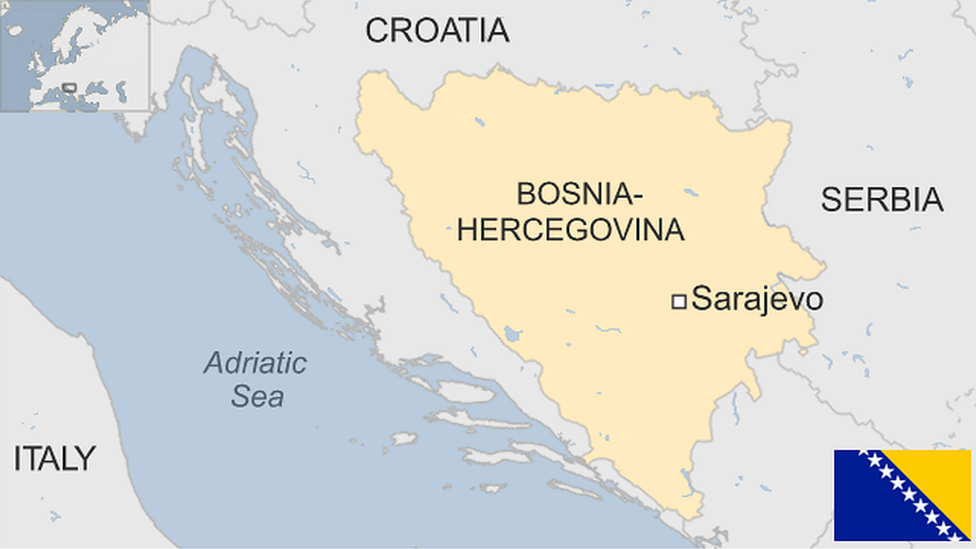
- Published18 March 2016
